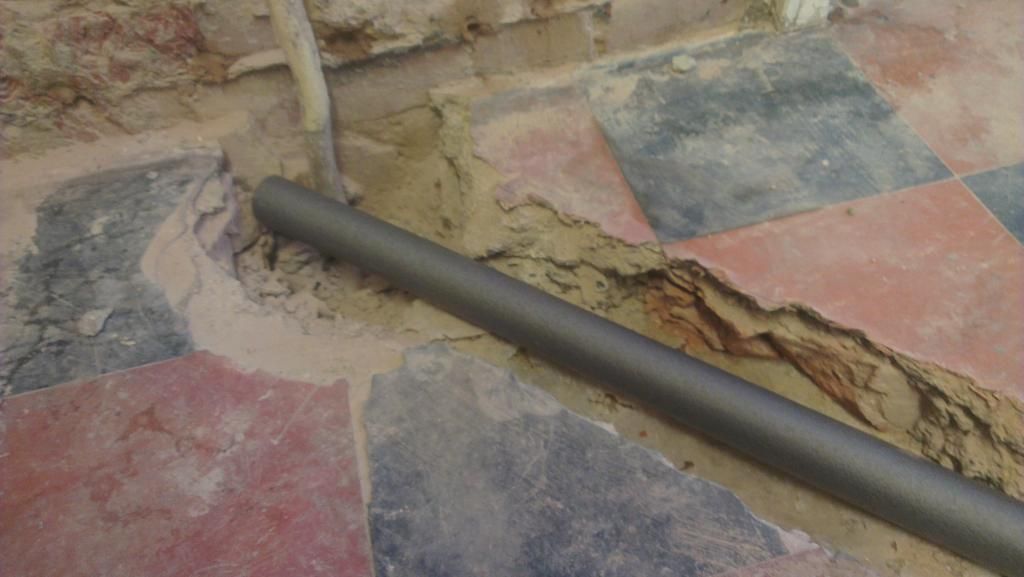Hi all, I just want to make sure I'm doing this correct. I've got a hot and cold pipes that are going in a solid uninsulated floor in the kitchen. I've dug down to the dpm layer, about 3 1/2"
I was going to wrap the pipes with corrosion resistance tape and then add insulation around them.
Then pack around it with building sand and then screed over.
Does that sound correct. Thanks

I was going to wrap the pipes with corrosion resistance tape and then add insulation around them.
Then pack around it with building sand and then screed over.
Does that sound correct. Thanks


